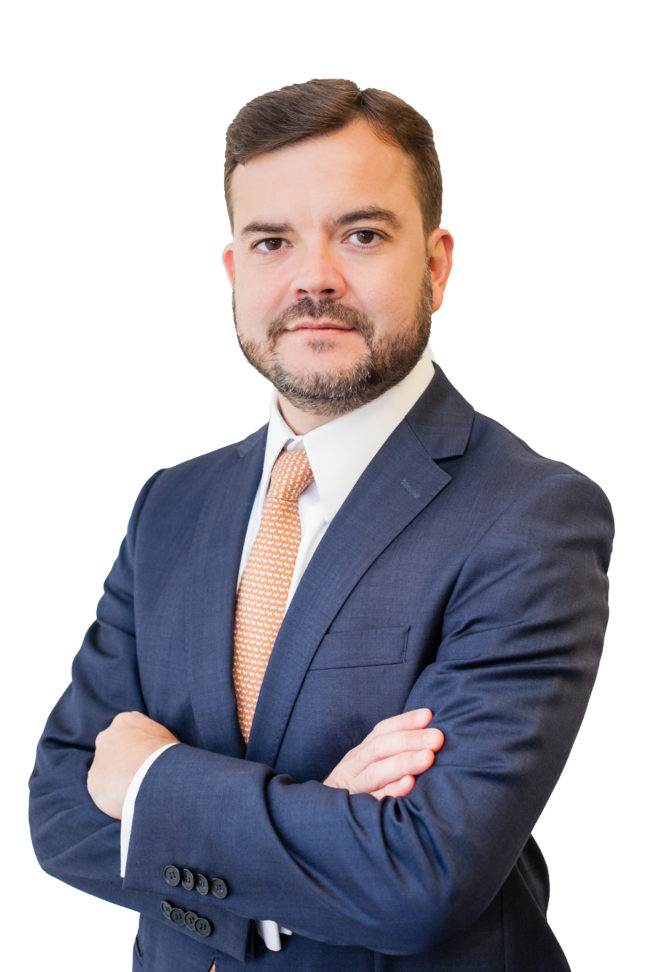Rodrigo Delboni Teixeira, sócio-diretor do Lobo de Rizzo Advogados, fala com o TTR sobre o mercado brasileiro de fusões e aquisições em 2017.
Como descreveria a performance do mercado brasileiro de M&A em 2017?
Dadas as condições políticas e econômicos, entendo que foi um ano bastante positivo para o mercado de M&A. Pudemos notar a volta do interesse do investidor estrangeiro por ativos brasileiros e o próprio mercado de capitas experimentou retomada, com novas ofertas iniciais de ações por companhias brasileiras.
do interesse do investidor estrangeiro por ativos brasileiros e o próprio mercado de capitas experimentou retomada, com novas ofertas iniciais de ações por companhias brasileiras.
O senhor possui vasta experiência nos setores Alimentar, Transportes, Aviação e Logística e Educação, que estiveram entre os mais ativos do ano. Como vê as tendências e expectativas para esses setores em 2018? Até que ponto a instabilidade política brasileira tem influenciado os investimentos nessas indústrias?
Acredito que estes setores continuarão a atrair investimentos no próximo ano. Inegavelmente, a instabilidade política traz receios e refreia o ímpeto de alguns investidores, mas temos visto que, mesmo nestes anos mais difíceis, os grandes grupos internacionais continuam com seus olhos voltados ao Brasil. Estes grupos têm um horizonte de investimento de longo prazo e conhecem o potencial de um mercado de mais de 200 milhões de habitantes.
Fusões e Aquisições tem sido largamente utilizadas no setor de Educação como estratégia de crescimento e de expansão no cenário nacional, sendo um mercado que encontra-se aquecido, seguindo um movimento de consolidação no setor. É possível reconhecer alterações ou inovações nos últimos anos em relação às transações realizadas no setor?
Houve um forte movimento de aquisições na última década no setor de ensino superior, com a criação de grandes grupos nacionais. Os setores de ensino de idiomas e sistemas de ensino para escolas também apresentaram forte movimento de transações. Acredito que, em setores mais consolidados, o foco das aquisições passe a ser mais em acréscimo de qualidade do que em crescimento propriamente dito. Não obstante, a área de Educação é muito ampla e devemos ver transações em outros setores. O setor de ensino fundamental e médio (colégios), por exemplo, deve atrair bastante atenção nos próximos anos.
Quais transações destacaria em termos de importância e complexidade esse ano, sejam as que tenham atuado diretamente ou que contaram com a participação do Lobo de Rizzo?
Eu destacaria as principais transações que acabamos divulgando no próprio TTR, como Odebrecht Transport,Cargill, Burger King, Döhler, State Power Investment (SPIC), Centroflora, Thyssenkrupp, DHL, Porta dos Fundos,Itaúsa, Pearson e Coca-Cola.
Quais são suas expectativas para o mercado de M&A brasileiro em 2018? Quais cenários ou tendências já podem ser identificados, e quais setores possuem, na sua opinião, maior potencial de crescimento?
Embora seja um ano de eleições, que traz mais incertezas aos investidores, espero que seja um ano positivo para o mercado de M&A no Brasil. As recentes notícias econômicas são mais animadoras, como queda da inflação e aumento da perspectiva de crescimento do PIB. Caso consigamos avançar com a reforma da previdência, o cenário para investimentos será ainda mais positivo. Ademais, como mencionado, há grandes grupos que olham o Brasil no médio e longo prazo e não deixam de aproveitar oportunidades de investimentos. Além dos setores já citados, acredito que o setor de saúde (não somente clínicas e hospitais, mas também atividades correlatas como distribuição de produtos e equipamentos médicos) pode surpreender positivamente. Este setor tornou-se mais aberto ao investidor estrangeiro recentemente e tem um grande potencial de crescimento e consolidação que, a meu ver, ainda não foi explorado em razão dos recentes anos de crise econômica.
**************
Rodrigo Delboni Teixeira, managing-partner at Lobo de Rizzo Advogados, talks to TTR abour the results of the M&A market in Brazil in 2017.
How would you describe the performance of the Brazilian M&A market in 2017?
Given the political and economic conditions, I understand it was a very positive year for the M&A market. We noticed renewed interest of foreign investors in Brazilian assets and the capital market itself is recovering, with new initial public offerings by Brazilian companies.
You have considerable experience in the industries of Food, Transportation, Aviation, Logistics and Education, which were among the most active industries this year. What are the trends and expectations for such industries in 2018? How much has the Brazilian political instability influenced investments in those industries?
I believe such industries will continue to attract investments next year. There is no denying that political instability causes concerns and holds back investors, but we have witnessed that, even in difficult years, large international groups are still interested in Brazil. Those groups have a long-term investment horizon and they know the potential of a market of more than 200 million inhabitants.
Mergers and acquisitions have been widely used in the Education sector as a growth and expansion strategy in the domestic scenario, seeing it is a booming market, which follows a consolidation trend in the industry. Is it possible to recognize changes or innovations in the past years regarding transactions in the industry?
There has been a strong acquisition trend in the last decade in the higher education sector, with the creation of large Brazilian groups. The language teaching sector and teaching systems for schools have also shown an increasing transaction trend. I believe that, in more consolidated industries, the focus of acquisitions will be increasingly aimed at quality instead of at growth itself. Nevertheless, the Education area is extremely wide and we should see transactions in other sectors. The primary and secondary school (high school) sectors, for example, should attract considerable attention in coming years.
Which transactions would you highlight in terms of importance and complexity this year, whether by having a direct role or by having the participation of Lobo de Rizzo?
I would highlight the main transactions we disclosed in the TTR, such as Odebrecht Transport, Cargill, Burger King, Döhler, State Power Investment (SPIC), Centroflora, Thyssenkrupp, DHL, Porta dos Fundos, Itaúsa, Pearson and Coca-Cola.
What are your expectations for the Brazilian M&A market in 2018? What scenarios or trends can already be identified, and which sectors have, in your opinion, the greatest potential for growth?
Although this is an election year, which brings more uncertainties to investors, I hope it will be a positive year for the Brazilian M&A market. Recent economic news stories are encouraging, such as the drop in inflation and promising outlook for GDP growth. If we are able to make progress with the pension reform, the investment outlook will be even more positive. Furthermore, as I have mentioned, there are large groups looking at Brazil in the medium and long term and they do not fail to seize investment opportunities. In addition to the industries already mentioned, I believe the health industry (not only health care facilities and hospitals, but also related activities such as distribution of medical products and equipment) may surprise us positively. This industry has become more open to foreign investors recently and has a large growth and consolidation potential that, in my opinion, has not been explored yet due to the recent years of economic crisis.
Leia sobre as transações de Rodrigo Dalboni Teixeira aqui.
Para saber mais sobre o escritório Lobo de Rizzo, clique aqui.
